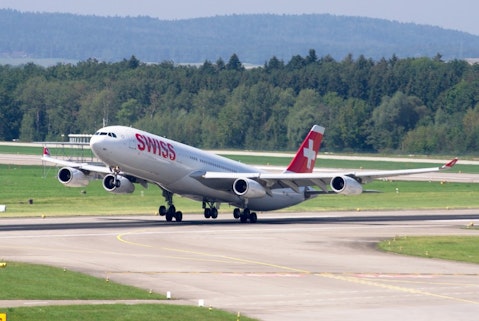Wolf Hill Capital sees a value in Aimia Inc (TSE:AIM), a $406.66-million market cap marketing and loyalty analytics company based in Quebec, Canada. AIM shares have plummeted more than 28% since the beginning of the year. In its Q4 investor letter, Wolf Hill said that Aimia is “incredibly mispriced with enormous upside optionality” despite around 50% increase in valuation since it initiated its position. In this article, we’ll take a look at the fund’s investment thesis on Aimia.
Montreal-based Aimia operates loyalty rewards programs on behalf of airlines, retailers, consumer product companies, financials, as well as companies in the automotive, technology, healthcare, telecom, and hospitality industries. Its loyalty programs includes Aeroplan in Canada, Nectar in UK, Air Miles in the Middle East, and Travel Club in Spain. Last week, Aimia announced that it sold its Nectar loyalty program to U.K. supermarket giant J Sainsbury PLC for about $105 million.

In May, Air Canada announced that it will leave Aimia’s Aeroplan loyalty program in 2020 and will launch its own loyalty program. Following the announcement, “investors rushed for the exits on fears that cardholders cashing in their points would cause a ‘run on the bank’, and that banks would abandon Aeroplan in favor of other loyalty program options,” Wolf Hill said in the letter, noting that the company’s board also board suspended the quarterly dividend payment in response to this unexpected news in a bid to “buttress its balance sheet with a cash war chest over the coming years as management seeks to replace Air Canada with new loyalty partners.”
In the weeks following this announcement, Aimia’s share price was eviscerated by over 80%. While existing shareholders were left holding the bag, we sensed an extraordinarily asymmetric investment opportunity to wade into this messy situation at an entry price of CAD $2.70.
Per Wolf Hill’s thesis, the beauty of the loyalty program business model is that “there can never be a ‘run on the bank’.
As customers rush to redeem all of their points at once for the following reasons: Card holders redeem points to get certain items that they want, principally travel, once they have accumulated enough points – not simply to get gift certificates for things they don’t necessarily care about. Second, card holders have a limited window for travel due to constraints around vacation time, etc. Most importantly, loyalty programs can simply devalue points (a trip from Vancouver to Miami costing 50,000 points as opposed to 35,000 points) and gate points by creating black out periods around popular redemption periods.
Talking about the another popular bearish thesis around Aimia that the credit card issuing banks could abandon Aimia in favor of other loyalty program options, Wolf Hill said it is unlikely for the banks to leave the popular Aeroplan cards program.
This is preposterous as banks pay $100-$500 per cardholder to sign up new cardholders – just on free points alone, not including marketing and overhead. They do this in the hope that the lifetime NPV of these cardholders will be in the thousands of dollars.
As long as banks stay in the program and customers continue to use their Aeroplan card, the network effects grow, and the “run on the bank” scenario becomes increasingly remote. In fact, these concerns are not supported by recent data points, given that key performance indicators such as cards issued, gross spend, and miles accumulated are all growing in the two quarters since the announcement.
Finally, Wolf Hill talked about Air Canada’s announcement and Aimia’s valuation.
We believe that Air Canada’s announcement of their intent to create their own loyalty program upon the expiration of their contract with Aimia could prove to be a hard-nosed negotiating tactic on the part of Air Canada CEO Calin Rovinescu, as the strategic logic of recreating a loyalty program in-house escapes us. As a former bankruptcy attorney, this negotiating approach would be consistent with his negotiating tactics with labor unions earlier in his tenure as Air Canada CEO. Even if Air Canada fails to come back to the negotiating table, we believe that Aimia will be successful in signing up alternative loyalty partners (cruise operators, casino’s, etc) as the broad reach and popularity of the Aeroplan card should appeal to other potential loyalty partners.
Despite an approximate 50% increase in valuation since we initiated our position, Aimia is still incredibly mispriced with enormous upside optionality. At recent prices of CAD $3.75 the market is valuing Aeroplan at <2.5X EBITDA and we are getting Aimia’s 49% stake in AeroMexico’s loyalty program, PLM for free. PLM is on a $100mm EBITDA run rate and growing 20% annually. Using a conservative 10x multiple, Aimia’s stake in PLM is worth an additional CAD $4/ share. Our work suggests that by the time the Air Canada contract rolls off in 2020, Aimia should have about $4/share of net cash on the balance sheet. In short, we are buying $8 worth of assets for less than $4 today – and that assumes that Aimia’s ownership in Aeroplan is worthless – an outcome that we deem to be exceedingly remote.
Shares of Aimia Inc (TSE:AIM) have dropped nearly 72% over the past 12 months. However, the stock has gained 65% over the last six-month period.
For the third quarter ended September 30, Aimia reported a total revenue of C$452.1 million, down compared to C$503.6 million for the same quarter in 2016. The company booked a loss of C$40.3 million, or C$0.26 per share, compared to C$1.5 million, or C$0.04 per share, in 2016. Adjusted EBITDA was $60.3 million or 12.1% of gross billings, including a restructuring expense of $11.1 million. Adjusted EBITDA was $60.5 million or 10.8% in 2016.
Meanwhile, on Wednesday, shares of Aimia were closed up 9.09% at C$2.52.




